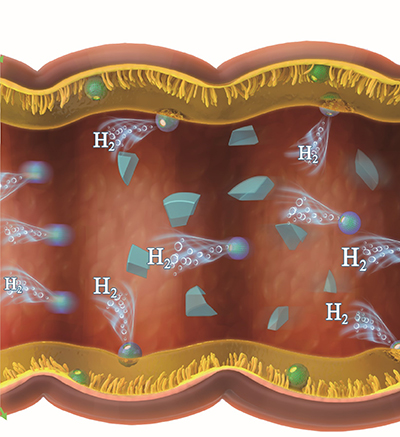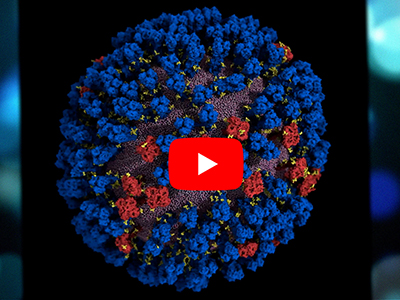FOR IMMEDIATE RELEASE
“Screening through Lead Optimization of High Affinity, Allosteric Cyclin-dependent Kinase 2 (CDK2) Inhibitors as Male Contraceptives that Reduce Sperm Counts in Mice”
Journal of Medicinal Chemistry

Despite birth control existing for decades, almost none of the options specifically target sperm cells. Researchers are now developing approaches that target testosterone or otherwise interrupt the sperm’s ability to fertilize an egg, yet these may not work for everyone. But now, researchers publishing in ACS’ Journal of Medicinal Chemistry have identified a new candidate molecule that could become an effective non-hormonal contraceptive for many people who produce sperm.
Previously, Gunda I. Georg and colleagues investigated non-hormonal contraceptive options, as approaches targeting testosterone produced unwanted side effects. They developed a drug targeted at a specific vitamin A receptor and found that it worked as a highly effective contraceptive with no side effects. But numerous proteins are involved in forming sperm, and exploring multiple options would help increase the likelihood of one making it to human clinical trials and eventually onto the market.
Another set of proteins involved in the cell cycle are the cyclin-dependent kinases, or CDKs, which play a role in sperm cell production and tumor development. Mice without the CDK2 receptor are sterile, so a drug that targets this protein could serve as an effective contraceptive. It also has potential as a cancer therapeutic because inhibiting the enzyme slowed tumor growth in previous studies. However, CDK2 has a very similar shape to other enzymes in its family, and currently available inhibitors tend to produce undesirable off-target effects by accidentally binding the others as well. So, Georg and her team wanted to develop a drug that could selectively inhibit CDK2 to serve as another contraceptive option.
The team previously discovered an unknown binding site in CDK2 and a commercially available dye molecule that successfully bound to it. Using the dye as a starting point, the researched screened tens of thousands of different compounds in their current work to find ones that also bound the pocket well. They narrowed the list down to just three, picking one to further optimize. The best version, named EF-4-177, demonstrated a long half-life and good diffusion into the testes of mice. After a 28-day exposure, the animals’ sperm counts decreased by about 45%. Additionally, EF-4-117 bound much more strongly to the CDK2 pocket than the dye, making it the highest affinity inhibitor for this site reported to date. The researchers say that this work proves the potential of this inhibitor for future therapeutic applications.
The authors acknowledge funding from the Eunice Kennedy Shriver National Institute of Child Health and Human Development (NICHD), the National institute of Health, the National Institute of General Medical Sciences and the National Cancer Institute.
###
The American Chemical Society (ACS) is a nonprofit organization chartered by the U.S. Congress. ACS’ mission is to advance the broader chemistry enterprise and its practitioners for the benefit of Earth and all its people. The Society is a global leader in promoting excellence in science education and providing access to chemistry-related information and research through its multiple research solutions, peer-reviewed journals, scientific conferences, eBooks and weekly news periodical Chemical & Engineering News. ACS journals are among the most cited, most trusted and most read within the scientific literature; however, ACS itself does not conduct chemical research. As a leader in scientific information solutions, its CAS division partners with global innovators to accelerate breakthroughs by curating, connecting and analyzing the world’s scientific knowledge. ACS’ main offices are in Washington, D.C., and Columbus, Ohio.
To automatically receive press releases from the American Chemical Society, contact newsroom@acs.org.
Note: ACS does not conduct research, but publishes and publicizes peer-reviewed scientific studies.






